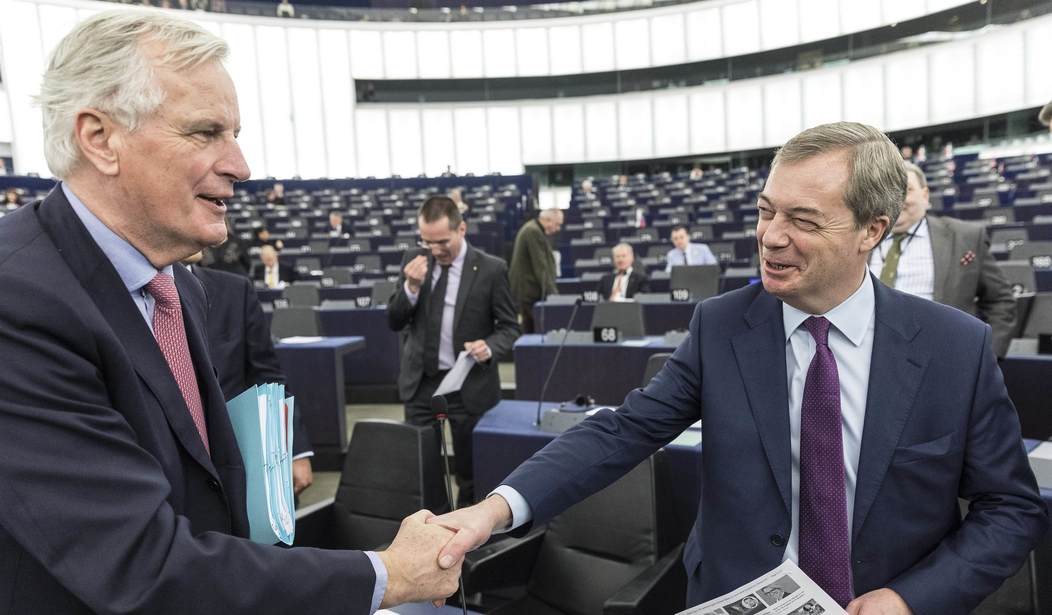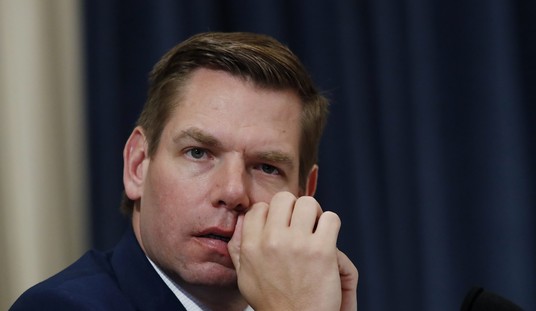Political parties generally go unappreciated, even among those inclined to celebrate representative democracy. The Founding Fathers famously didn't like them yet found themselves forming them, not long after the First Congress assembled.
This suggests something I have come to believe while writing essays on our two long-lived American parties: The quality of electoral democracy depends heavily on the performance, the steadiness and the adaptability of admittedly self-interested political parties.
They haven't done very well lately, especially in the European Parliament elections conducted over the last week. Traditional parties of the left, long the favorite of blue-collar workers in industrialized societies, seem to be fading out of existence.
The British Labour Party got 14 percent of the vote, its lowest since 1910. France's Socialists, a governing party just two years ago, got 6 percent. Germany's Social Democrats, founded in 1880, were at 15 percent. These parties' working-class base has been shrinking, and their metropolitan intellectuals are flaking off to Greens or (in Britain) anti-Brexit Lib Dems.
Traditional parties of the right aren't doing much better. Fourteen-year Chancellor Angela Merkel's CDU/CSU was at 29 percent. France's Gaullist Party was swept aside two years ago by Emmanuel Macron's personal party, which was outpolled last week by Marine Le Pen's National Rally.
Britain's Conservatives got 9 percent -- the weakest showing ever for a party founded in 1846, 1834 or 1678, according to various reckonings. In contrast, the Brexit Party, founded just this year, finished number one, with 31 percent.
Recommended
This is a rebuke of Prime Minister Theresa May, who was forced to announce her resignation before the results were announced. She failed to obtain Brexit -- leaving the European Union -- after it was approved by a record turnout of voters in June 2016.
The Brexit vote split the electorate in different ways from traditional patterns. Conservatives were long the party of the upper and middle class, and Labour the party of workers. France historically was split between Catholics and anticlericals, Germany between Protestant socialists and the Catholic CDU/CSU.
Increasingly, the split is now between what the British analyst David Goodhart calls the "Anywheres" and the "Somewheres." The Anywheres are the high-education metropolitan elites -- think former Prime Ministers Tony Blair and David Cameron -- and their less well-off neighbors, plus racial minorities. Somewheres tend to be less educated and located in the heartland countryside, where their families have been for generations.
Thus, in 2016, London voted 60 percent and Scotland 62 percent against Brexit. But the rest of England -- the large majority of the country -- voted 57 percent for Brexit. Last week, the Brexit Party carried 9 of 11 UK regions, while Lib Dems carried London and Scottish Nationalists carried Scotland.
That's a fit response to the Anywheres' arrogant dismissal of Brexit voters as racists too stupid to decide such an issue; to their brain-dead proposal (echoed by May) of a second referendum; and to their predictions, so far unfulfilled, that Brexit would be an economic disaster.
The division between Anywheres and Somewheres, and a corresponding sweeping-aside of traditional parties, is apparent in France and Germany as well. Italy, which seemed to be developing a stable two-party system in the 1990s and 2000s, is now governed by a left-right coalition of a party founded by a left-wing comedian 10 years ago and a right-wing party formerly limited to the country's prosperous north.
The division is also apparent in last month's election in Australia, in which the traditional parties' constituencies were altered just marginally by the Labour Party's climate change policies, enabling the center-light Liberals to gain blue-collar votes while losing a high-education seat held by a former prime minister.
That's similar to the movements that started in the 1990s, when Bill Clinton's New Democrats made gains in affluent states and districts while hanging on just enough to win in the Rust Belt and Appalachia. Those trends were apparent, in vividly amplified form, in Donald Trump's election in 2016 and Democrats' capture of the House in 2018.
The question now is whether the far-out policies backed by many Democratic presidential candidates -- the Green New Deal, ninth-month abortions, open borders, race reparations -- will harm their party more than Donald Trump's uncouthness harms his.
It may be that, by nominating and now almost unanimously supporting Trump, despite his break from party ideology on immigration and trade, Republicans have enabled their party to transition beyond 1990-2010 alignments and adapt to the emerging division between Anywheres and Somewheres. Sometimes even ancient parties must change in order to thrive -- or even survive.
Michael Barone is a senior political analyst for the Washington Examiner, resident fellow at the American Enterprise Institute and longtime co-author of The Almanac of American Politics.

























Join the conversation as a VIP Member